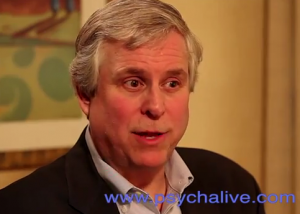It isn’t whether you win or lose, it is how you play the game, or is it? The law of unintended consequences
 It seems today as if outcome or product is the priority. From grades and test scores, following rules, being “good”, winning a soccer game to getting into the best college or job, the focus is on the end product. While this seems to be a responsible pursuit for conscientious parents, this path may in fact lead to significant unforeseen and undesirable consequences. This then begs the question, if my goal as a parent isn’t to help my children succeed (aka: grow up to get a good job), then what am I to focus on? I can’t let him be lazy, irresponsible or run amok!
It seems today as if outcome or product is the priority. From grades and test scores, following rules, being “good”, winning a soccer game to getting into the best college or job, the focus is on the end product. While this seems to be a responsible pursuit for conscientious parents, this path may in fact lead to significant unforeseen and undesirable consequences. This then begs the question, if my goal as a parent isn’t to help my children succeed (aka: grow up to get a good job), then what am I to focus on? I can’t let him be lazy, irresponsible or run amok!
When bombarded by the messages that tests, competition and paychecks are what are important, it is easy to lose sight of the fact that an intense focus on outcomes and product may result in many unintended consequences. It isn’t the win or test score that makes someone successful; it is the process, which includes effort. Embedded in effort is the capacity to manage attention, develop frustration tolerance and perseverance. Basically it requires learning how to do hard or unpleasant things. This is a skill that is essential to practice in this day and age of instant gratification and quick answers with technology from video games to on-line searches at one’s fingertips. We used to have to sort through card catalogs, encyclopedias and tolerate listening to music not of our choosing, and commercials when watching TV. Today our children don’t have to face even these minor irritations.
Focusing on process instead of product also helps someone learn about himself or herself. Guessing what the teacher, coach or test may ask is an important skill to develop to get the grade or job. However, it also may incidentally teach that meeting others’ expectations to get a grade or acceptance is what makes someone successful. This in turn leaves one in the vulnerable position of thinking that if I don’t make the grade or if I get rejected, I am a failure. Parent/child relationships are often plagued with such controversies. When parental approval is weighted toward the child’s success in school, this can cause significant despair, conflict, depression and potentially self-harming behavior. In the adult world, industry is outcome driven in terms of financial statements and the bottom line. Consequently individuals may be seen as dispensable. As cited in The Lancet, a respected medical journal, with the increase in unemployment from 5.8% to 9.6% between 2007 and 2010 there was an acceleration of the suicide rate, possibly accounting “for about a quarter of the excess suicides noted in the USA during this time”.1
Another consequence of our outcome/product orientation is the impact on the joy of learning. If every step is measured/quantified and otherwise under the microscope, there is little room for curiosity or exploration. While school and academics are essential, a rigid emphasis on grades, especially in the early years before high school, does a disservice to the love of learning. The risk of focusing on outcome may well be teaching our children that outcome (money, success, things) is all that matters. Passion is what helps one transcend the viscidities of learning and ultimately of life. Passion, curiosity and a love of learning are invaluable to society in terms of innovation and progress.
Finally, the focus on outcome and product brings to mind the Machiavellian idea that “the ends justify the means”. As young minds are developing their moral compass, they are at risk of receiving the wrong message when they observe emphasis being placed on outcome. A recent Wall Street Journal article asked, “How Could a Sweet Third-Grader Just Cheat on That School Exam?” This article cites an anonymous survey from 1999 suggesting that 30% of elementary students reported cheating.2 So why are we so aghast when we hear about cheating scandals, white collar crimes, and other “victimless crimes?” When there is an emphasis on the outcome rather than the process, it is easy to believe that “it is OK as long as I don’t get caught”. While it may seem strange to some, celebrating the effort instead of the grade, even when the grade is poor, can be a powerful way to support moral development in the face of our outcome, product oriented society.
In closing, I want to share a story I heard from parents of a nine year old boy. He is an excellent soccer player and was invited to try out for a competition level team. After his tryout, it was revealed that parents of a group of club soccer playing boys had insisted that they either have all their children on the team or leave the league. Unfortunately, the league capitulated making the tryout irrelevant. Sadly, this example modeled manipulation to achieve a particular outcome. In the short run, one boy is sad and left out, but he is not the one I am worried about.
[1] Reeves, A., Stuckler, D., McKee, M., Gunnell, D., Chang, S. S., & Basu, S. (2012). Increase in state suicide rates in the USA during economic recession. The Lancet, 380(9856), 1813-1814.
[1] Shellenbarger, S. (May 15, 2013) How Could a Sweet Third-Grader Just Cheat on Than School Exam? The Wall Street Journal, Retrieved from http://online.wsj.com/article/SB10001424127887324216004578483002751090818.html.
Tags: parenting style, success, teaching children










Leave a Reply
You must be logged in to post a comment.